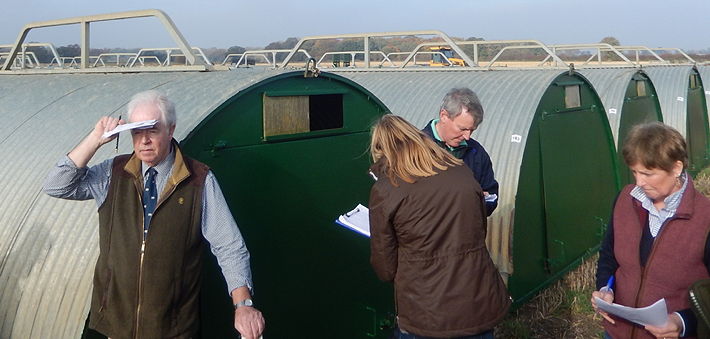Although the SPP continues its steady upward progress, putting on a further .78p to stand at 151.64p, unfortunately trading values on the other side of the English Channel have eased with the latest German producer price back by six euro cents to €1.77, but this is worth 159p dead weight in our money which is still 7.36p higher than our SPP is at present.
Weekly contribution prices have in the main remained at similar levels, with most between 143p and 150p but still not fully reflecting spot prices which have in the main been in or around 150p/kg.
The main problem seems to centre around slack demand at the retail end of the sector rather than too many pigs with the larger abattoirs saying if they had better demand they could easily have slaughtered more pigs. Lamb and beef farmers also seem to be suffering from the same reduction in consumption levels of most red meats.
The AHDB and the industry as a whole need to re-promote pig meat to try and stimulate better demand as we cannot rely on the ASF pig shortage in China and the Far East to come to our rescue, especially as reports have been received that the missing ASF pigs can to some extent be replaced by chickens at relatively short notice.
As a result of slightly slower demand for UK pig meat, especially in the RSPCA Assured sector, pig space remains tight on breeding and rearing units at a time when more numbers are also coming forward.
Cull sow values have also unfortunately taken a significant downward step with export quotes generally 5p down on the week before with the result that despite an improvement in the value of the euro which traded today worth 89.87 compared with 89.76p a week ago, most export prices for cull sows have been in and around 100p, which is still however much higher than they were three months ago.
As mentioned above, it has been difficult to find space for non-contract weaners but the latest AHDB 7kg average has moved up by 17p to £37.83 but there were insufficient numbers for a 30kg average to be announced. However, most are trading around £15 above the value of their 7kg counterparts.
Feed prices are however painting a slightly better picture with ex farm UK feed wheat averaging £140.70/t, down by £5 on the previous week and feed wheat futures for September are quoted at £145/t with barley at £131/t.
Protein values are holding at generally similar levels with Hipro soya traded at £305/t for August-October and £314/t for November-April ‘20.
And finally, more concerns on the disease front with recent reports that meat products imported from Asia to Northern Ireland have traces of African Swine Fever, which is wreaking havoc throughout much of the Far East and although veterinary sources are saying that this discovery does not pose a significant threat to our animal health status, it does underline the need for personal imports of meat as well as commercial shipments to be subject to rigorous testing because if ASF or any other notifiable diseases hit these shores it would be a case of the last one leaving turning out the lights!




